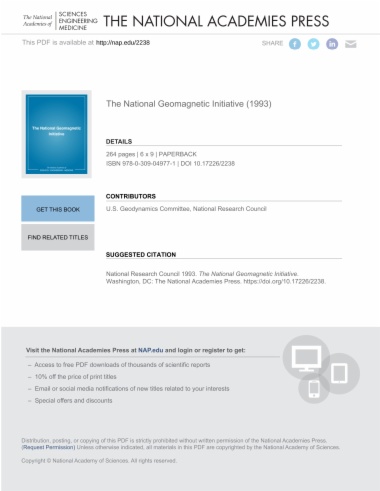This book provides a comprehensive review of geomagnetism and describes the scope of the science and its interdisciplinary importance. It explores a wide range of synergistic linkages in geophysical research and associated applications related to the geomagnetic field, as well as corresponding challenges and opportunities.
- Cover
- Front Matter
- Executive Summary
- Scientific Framework
- Scientific Issues and Research Opportunities
- Observational Needs and Facilities
- Data Management
- Communication and Coordination
- Appendix A: Topical Working Group Reports
- A1: The Magnetosphere, Ionosphere, and Atmosphere
- A2: Understanding the Nature and Evolution of the Lithosphere from Magnetic Anomolies
- A3: Electromagnetic Induction Studies in the Earth and Oceans
- A4: Main Field and Core Processes
- B1: Operational Platforms
- B2: Data Management Systems
- B3: Interagency Communication and Coordination
- Appendix C: Workshop Organization
- Appendix D: Acronyms, Abbreviations, and Special Names

